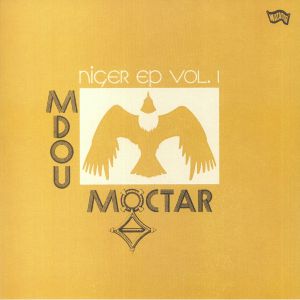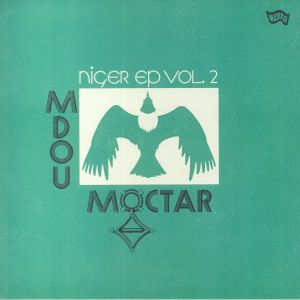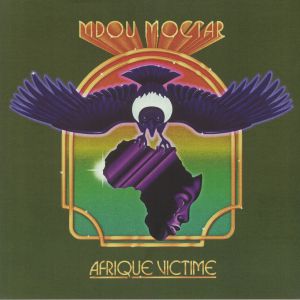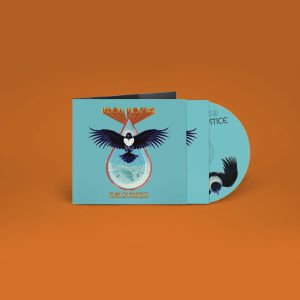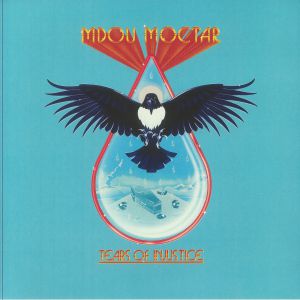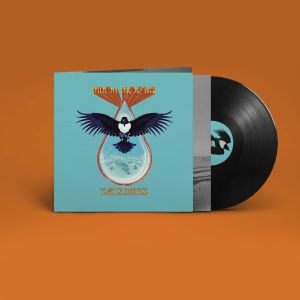Receive new release alerts for Mdou Moctar
MDOU MOCTAR Vinilo y CD
Browse the latest Vinyl & CD releases by Mdou MoctarSimilar artists:
Artículos del 1 al 8 de 8 en la página 1 de 1
Funeral For Justice (limited gatefold blood red vinyl LP)
Cat: OLE 2031LPE. Rel: 02 May 24
Psych/Garage Rock
Review: Audibly energised by their global tour following the drop of 2021's breakout record 'Afrique Victime', Mdou Moctar and band return with an album of psychedelic assouf centring around themes of global unrest. Moctar's guitar sounds more frazzled and warm than ever, and the ever-cleaner production only serves to highlight the dazzling musicianship of his band. Quickly amassing an impressive and diverse discography of Tuareg rock heaters, Mdou Moctar further cements his reputation as the Nigerien Hendrix.
… Read more in stock $26.29
Review: The Mdou Moctar mixtape series started in 2021. It is music made from sounds captured in the back of a van while on tour including field recordings, cell phone voice memos, interview clips, conversations and more. The Niger EPs now continue on that theme and look closely at the roots of the band, which lay in long bus rides across West Africa sitting next to people and talking about music. As such the music here is solely from recordings in Mdou Moctar's home country of Niger between 2017 and 2020 when the band was at weddings, picnics, rehearsals, and impromptu house concerts.
… Read more in stock $16.94
Review: Mdou Moctar is a Tuareg, Niger musician best known for his personal sound; he calls it Tuareg guitar music, drawing on styles like takamba and assouf. His music was originally circulated not via the internet, but rather an informal trade network of memory sticks and mobile phones in the Sahel region of North Africa. This musical scarcity captured the imagination of the net-based musical audience at large, following Moctar's formation of a four-piece band and emergent touring schedule aided by motorcycle, not to mention his demo music being leaked on a compilation documenting the cellphone based music of the Sahel in the early 2010s. 'Niger EP. Vol. 2' tops up the artist's latest EP series, laying down a further four entrancingly electric songs recorded at various weddings, picnics and house concerts.
… Read more in stock $16.94
Intérprete: Juno Recommends International
in stock $25.43
in stock $12.15
Review: Nigerian singer, songwriter, and guitar legend, Mdou Moctar should need no introduction if you keep an ear to the ground of sub-Saharan African music. Then again, the vague region covers a vast area - land in all four hemispheres and around 15% of the Earth's walkable surface. So you could be forgiven for missing out on an individual artist if, for example, you weren't already looking for them specifically. Or relied on Western culture media for tips on what to hear next. That said, problematically tunnel-visioned as the North Atlantic-hegemony of commentators can be, Moctar has been something of a darling to UK, European and US musos for a while now. On Tears of Injustice he presents a convincing case for their continued adoration. A master of Tuareg, a style of music also known as desert blues, it's an intoxicating sound that easily transports and invokes, even if the predominantly Tamasheq language he sings in remains a mystery - arguably another factor in the powerful mythology surrounding his legacy.
… Read more in stock $27.11
Review: Mdou Moctar's reimagining of his work presents a powerful counterpoint to the blistering original. Recorded in the wake of a political crisis that left the band stranded in the US, this acoustic version strips back the aggression, replacing it with raw grief. The band, recording in Brooklyn's Bunker Studio, brings a new, meditative quality to the music, with the songs remaining heavy but haunting in their unamplified form. The standout 'Imouhar' takes shape through two rapid-fire passes, seamlessly merged into one hypnotic take. Where the original album burned with anger, this version captures the sadness and sorrow of a nation caught in perpetual turmoil.
… Read more in stock $25.43
Review: From their low-key discovery through the Sahel Sounds label via a leap to Third Man and now on to Matador, the rise and rise of Mdou Moctar has been a marvel to behold, albeit not exactly surprising. Led by Mahamadou Souleymane but now framed as a quartet, their Tuareg desert blues sound has a sharper bite than similarly popular acts like Tinariwen which responds very well to a bigger production. Long time fans fear not, the spark of Souleymayne's songwriting and playing is intact, but there's a vibrancy to tracks like 'Imouhar' and 'Funeral For Justice' as they play with dynamics and tension which bring an exciting new dimension to desert blues.
… Read more in stock $25.43
Artículos del 1 al 8 de 8 en la página 1 de 1

 USD
USD






